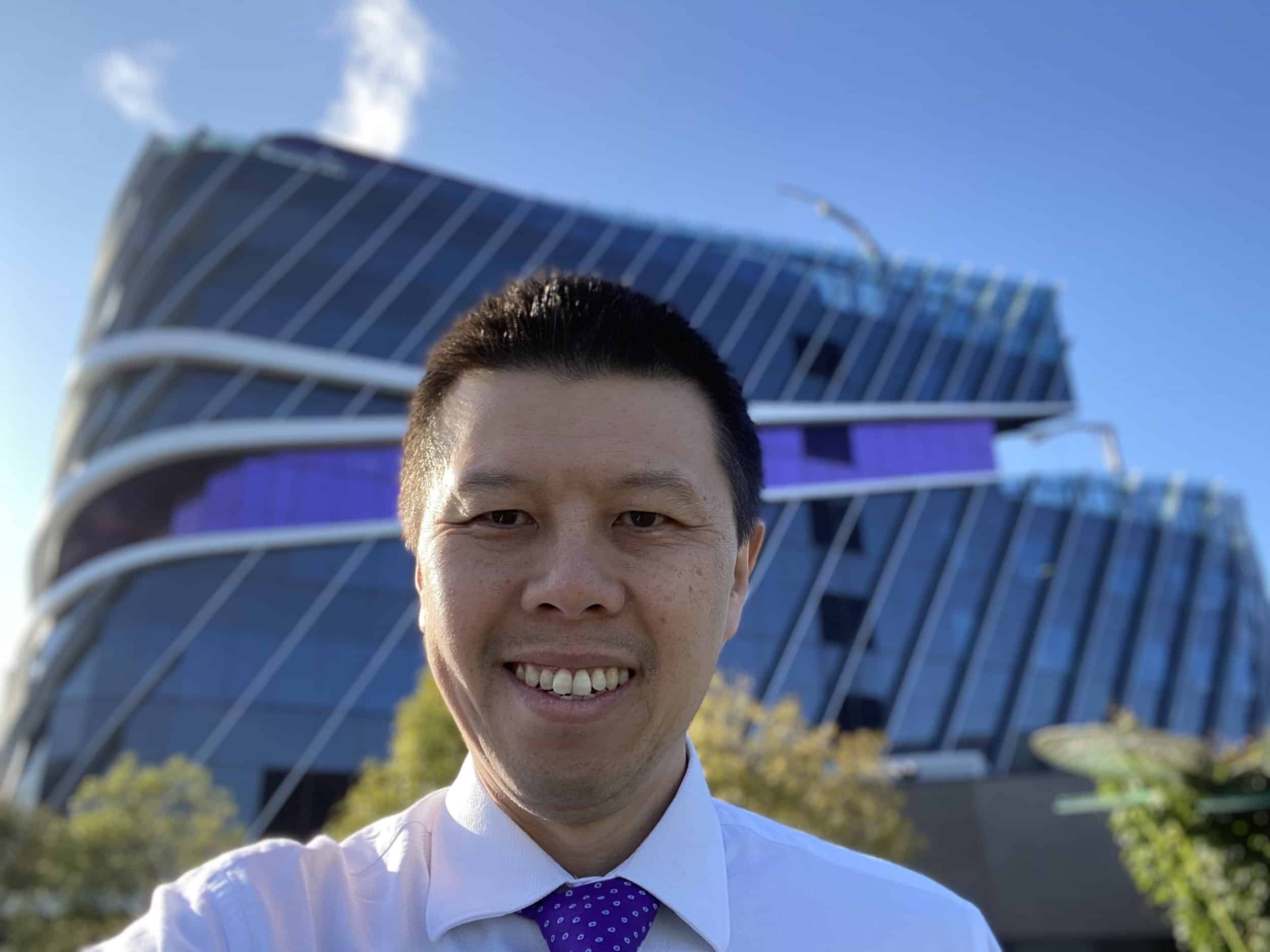
Dr Peter Lau is an early career medical oncologist-scientist with expertise in breast, melanoma and skin cancers. His interests include immunotherapy, clinical research, and trials. Dr Lau believes in patient-centred care, involving a multi-disciplinary team of clinicians and researchers.
I completed my training in Perth and completed a WA Cancer and Palliative Care Fellowship focussed on breast cancer in 2014. The following year I headed to Peter MacCallum Cancer Centre in Melbourne to undertake a Melanoma Fellowship focused on immunotherapy. Shortly thereafter I was appointed as a consultant in the service and combined my clinical practice with PhD studies. I was part of a large team running clinical and translational research and had the privilege of helping lead an Australia-wide clinical trial investigating a novel immunotherapy combination in melanoma, which is due to report its findings soon. My participation in translational research led me to understand that patient care is more than just treating the person in front of you. It is also about improving practice and looking for ‘what’s next’ using research and clinical trials to inform how to treat current and future patients in the best possible way.
I like to describe cancer medicine as a multi-disciplinary sport. Just like any other sport, it relies on many players (surgeons, radiation oncologists, radiologists, pathologists, nurses, allied health staff and so on) each doing their part to improve patient outcomes. Medical research is the same – a multi-disciplinary approach is essential for success. During my 5 years at Peter MacCallum Centre, I experienced an environment in which the work between all players in cancer medicine was ‘frictionless’ with complete integration of cancer specialties.
Health professionals worked together as teams, made easier due to co-location, leading to better collaboration, richer discussions, and better patient outcomes. It was a totally integrated model of care.
Seamless experiences for clinicians, where simple but annoying barriers (such as determining which laboratory has blood test results for your patient) are removed, lead to more time with each patient and a more seamless experience for them as well. For example, if my allocated time with my patient isn’t interrupted by trying to find scan results and all the pieces of information I need are in front of me, I can spend all my time focussed on my patient. To this end, the patient navigators at Peter MacCallum Cancer Centre were really helpful to smooth the journey for my cancer patients. Each service (melanoma, lung cancer, breast cancer, gastro-intestinal cancer service etc) had two patient navigators on staff. They were the first port of call for patients and assisted with logistical aspects, such as rescheduling CT scan dates to make sure they lined up with medical oncology appointments. These staff ‘navigated’ patients through their cancer journey and would help them with appointments with other specialists such as surgery or radiation oncologists or link them with cancer nurse coordinators to provide immediate over the phone advice. This role has a huge positive effect on doctors and nurses, easing their administrative load, and naturally had a massively positive impact on the patient experience as well. I have noticed cancer navigators are a critical part missing from the system here in Perth.
Bringing all the components of a clinical team under one roof, as is proposed for the WA Cancer Centre, is an important step forward for the cancer community here in WA. The current model, which is routinely explained as fragmented, is complex and difficult to navigate. The best outcomes arise when a clinician’s effort can be completely focused on the patient, and there are no unnecessary distractions such as unaligned IT services and multiple providers for things like scans and blood test results. Building a unified team of specialists is important and is the key to any Comprehensive Cancer Centre. In the same way that the Centre will bring together clinicians, cancer researchers will also be co-located making it much easier to power great advances in medical research that will only improve outcomes for our patients in the future.
Ultimately, what clinicians want is a cohesive patient-centred approach to care. We want to put the patient first and have them front and centre of what we do. Working in a Comprehensive Cancer Centre that puts everyone in one building, removes the unnecessary and distracting barriers and allows for complete integration of cancer clinicians. Adding to these improvements in clinical practice is also the potential to integrate research into everyday clinical care that will inevitably improve patient outcomes. Cancer is one of the most rapidly evolving fields of medicine and an integrated Comprehensive Cancer Centre which delivers true patient-centric care embedded with research is essential for providing the best possible outcomes for West Australians.
